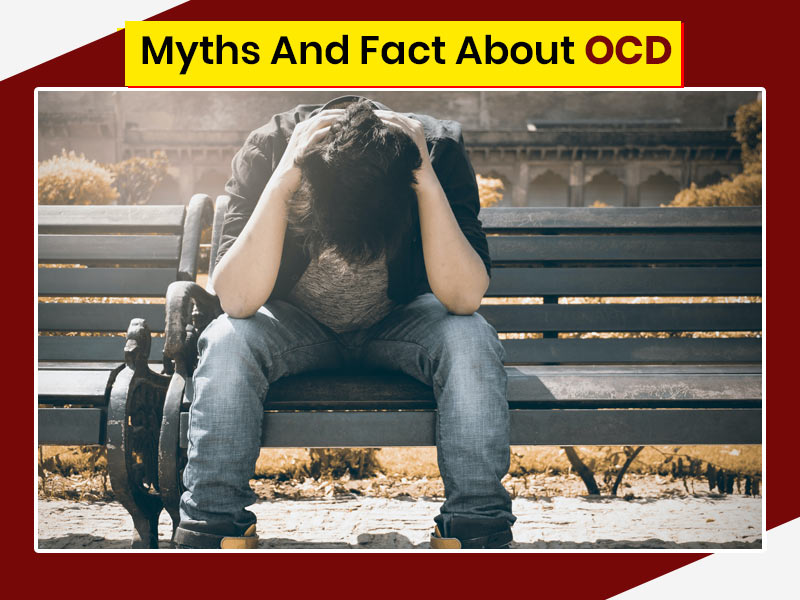
Do you know about mental illness of OCD? If you are unaware of this you must know as it one of leading cause of mental health problems in adults. Obsessive compulsive disorders those results to unnecessary thoughts and sensation which might trigger a normal person. This can be grow to be a terrible problem as a person suffering from OCD might not able to have a ideal social life after this illness. Even after so many cases and problems, obsessive compulsive disorders have many misconceptions around it. Hence to bust these myths we have with us Clinical Psychologist Dr. Tanu Chowdhury from Healthcare Clinic, Lucknow to keep us updated with real facts.
Table of Content:-
What behaviour does OCD person has?
Common behaviour problems of person who is suffering from obsessive compulsive disorder includes-
- Biting of nails
- Having negative thoughts
- Getting obsessed over a particular thing or word
- Stressed behaviour
- Depression and anxiety
- Frequent washing of hands
- Repetitive movements and behaviour
Common Myths And Facts About OCD
1. A person who likes is cleanliness freak has OCD
Fact- There is no truth to this, it is good to have cleanliness in mind and keep your surrounding clean. People who have been raised in a particular manner tend to do this quite often. Since a common sign of OCD is washing of hands, people think anyone who likes cleanliness has OCD. The trait of the person does not determine symptoms of obsessive compulsive disorder. Also just keeping cleanliness around them is just a healthy habit and there is nothing wrong with it.
Also Read- Haemophilia Blood Disorder: Know 7 Myths And Surprising Facts Behind This Disorder
2. Stress Causes OCD
Obsessive compulsive disorder is highly related to the stress and anxiety among people, but if you observe there is a difference between both conditions. So the people that have normal anxiety or stress have a particular cause of it depending on their situation, whereas people with OCD get hyped up symptoms of stress which causes panic among them. However stress alone cannot cause it.
3. OCD is there from childhood
This is a very wrong misunderstanding about OCD patients that it remains in them from the beginning. Actually OCD always develops in the later stage rather than in the initial stages. This is because genetics may play a role in increasing the risk, but not compulsorily affects their development. This is more common towards people that have poor self-esteem or show kind of dysfunctional behaviour in their childhood. But that can be just a general dysfunction or related to some other cause.

4. Kids cannot have Obsessive Compulsive Disorder
This is a partially false statement. The reason behind this is that OCD can happen to children but it usually happens after teenage. According to our expert this disorder occurs rarely in children especially below the age of 12 years. Hence kids might not be affected at such a young age, but they could have some initial symptoms for obsessive compulsive disorder. Dealing with OCD is related to age, happens usually in adults but is not true that it cannot occur in children.
Also Read- Check These 5 Common Hereditary Conditions To Avoid Health
5. Women Are More Prone to OCD
This is a very factual myths, it people observe women getting more affected by this disorder. The truth however remains that men and women both are affected at the same pace. Also this disorder has nothing to do with race, ethical groups and economic background. OCD affects everyone equally and can cause this disorder from ages 10-12 years to their late adulthood. Therefore this myth about women getting more affected by OCD is false.
6. Test can confirm OCD

According to studies and research, there has been no approved test which can actually diagnose Obsessive compulsive disorder. This is because it does not have any physical symptoms or eventual affect on nerves that could confirm OCD. Unlike diabetes or cancer, OCD can only be determined with help of an expert and physical examination. If you suspect having OCD symptoms, then look for three signs-
- Are you obsessed with a particular thing?
- Do you have compulsive behaviour?
- Does your behaviour or emotional status affect your routine activities?
7. There is no Treatment for OCD
There may not be a particular cause of OCD or test to determine it, but it can be treated. People are scared or do not seek OCD treatments because they are afraid to admit it. People treat OCD as madness or mental disease rather than illness. The first line of treatment for OCD is exposure and response therapy, and then further you may go through behavioural therapy. If OCD is determined at an early age, then there are chances that it can be treated.
Picture Credits- pixabay.com
Also watch this video
How we keep this article up to date:
We work with experts and keep a close eye on the latest in health and wellness. Whenever there is a new research or helpful information, we update our articles with accurate and useful advice.
Current Version
